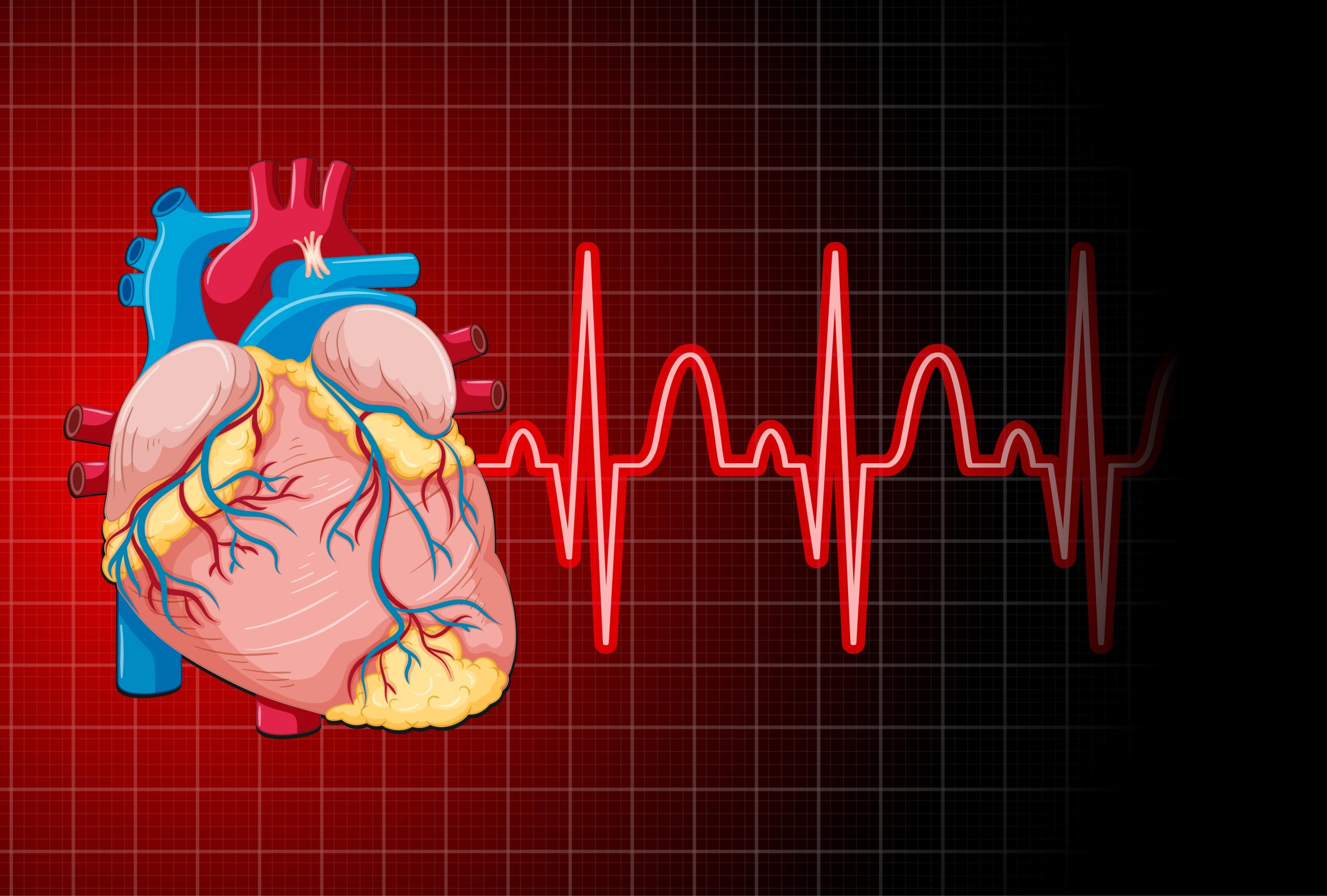Recognizing the Value of Cardiology in Modern Healthcare Services
Cardiology plays an essential role in modern health care, especially as heart problem continues to be the leading root cause of death worldwide. Advancements in diagnostics and treatment have actually transformed client care, allowing earlier treatments and enhanced outcomes. Furthermore, the change towards preventative cardiology encourages individuals to manage their health and wellness proactively. As modern technology remains to develop, the combination of innovative remedies may better redefine cardiology's impact on public health, motivating a more detailed assessment of emerging patterns and their implications.
The Occurrence of Cardiovascular Disease and Its Influence On Public Health And Wellness
Heart illness stays the leading cause of fatality around the world, its impact prolongs far beyond specific people to influence public health and wellness systems and economies. The high prevalence of heart problem places a significant pressure on health care sources, demanding enhanced financing for treatment, prevention, and recovery programs. Public health campaigns need to attend to danger aspects such as excessive weight, smoking cigarettes, and sedentary lifestyles, which add considerably to the climbing occurrence of heart conditions.Moreover, the financial concern related to heart disease is immense, including not only straight clinical expenses but also indirect expenditures associated to shed productivity and early mortality. Neighborhoods deal with challenges in handling these prices, often bring about variations in health care gain access to and results. As the population ages and lifestyle-related risks continue to intensify, the necessity for effective cardiology treatments ends up being vital. Attending to heart condition is not just an issue of private health yet additionally a crucial public health concern.
Advancements in Cardiac Diagnostics and Imaging Techniques
Current developments in heart diagnostics and imaging methods have actually transformed the field of cardiology, improving the ability to keep track of and identify heart problem. Techniques such as heart MRI, CT angiography, and echocardiography have ended up being progressively advanced, providing in-depth images of cardiac frameworks and features. These techniques allow for the very early recognition of conditions like coronary artery condition, heart failure, and valvular disorders.Moreover, improvements in non-invasive diagnostics, such as wearable modern technology and remote tracking gadgets, have equipped people and medical care companies. These devices facilitate real-time tracking of heart rhythms and various other essential indicators, leading to prompt treatments. Furthermore, synthetic knowledge is being integrated into imaging evaluation, enhancing accuracy and performance in diagnosis.
Developments in Treatment Choices for Heart Conditions
Recent improvements in cardiology have actually resulted in considerable developments in treatment options for heart problems. These consist of innovative medical techniques that boost step-by-step results and arising medications that use new avenues for treatment. As the area evolves, these advancements play an essential role in enhancing individual treatment and outcomes.
Advanced Surgical Techniques
Technologies in surgical techniques have changed the landscape of cardiology, supplying brand-new hope for patients with heart conditions. Minimally intrusive treatments, such as catheter-based treatments, have actually greatly reduced healing times and health center keeps. Techniques like robotic-assisted surgery enhance precision, allowing cosmetic surgeons to navigate complicated anatomical structures with higher accuracy. Developments in imaging technology help with real-time visualization during treatments, boosting end results. Transcatheter aortic shutoff replacement (TAVR) exemplifies an advancement in treating aortic constriction, making it possible for shutoff replacement without open-heart surgical treatment. Additionally, hybrid approaches that combine catheter-based and medical techniques offer tailored remedies for numerous cardiac issues. These innovative medical methods not only boost individual security but additionally broaden treatment alternatives, emphasizing the critical role of innovation in contemporary cardiology practices.
Emerging Therapies and medicines
As the landscape of cardiology continues to advance, arising medicines and treatments play a crucial function in boosting treatment options for heart disease. Developments such as unique anticoagulants and advanced lipid-lowering representatives have changed the administration of heart diseases, greatly minimizing person morbidity and mortality. Additionally, the growth of gene treatments and regenerative medicine offers appealing avenues for dealing with conditions formerly considered irreparable. Scientific trials are continuously revealing the effectiveness of these treatments, pushing the limits of typical treatments. Additionally, the assimilation of digital health and wellness modern technologies promotes customized medication, permitting for tailored treatment strategies based upon genetic and lifestyle elements. Collectively, these innovations highlight the vibrant nature of cardiology, enhancing client outcomes and redefining requirements of treatment in contemporary healthcare.
The Function of Preventive Cardiology in Individual Treatment
Precautionary cardiology plays an essential function in patient care by focusing on the identification of threat factors that add to cardiovascular disease. With way of life alteration strategies and early discovery strategies, healthcare companies can effectively reduce the incidence of cardio events - Cardiology care. This positive approach not just enhances patient outcomes however additionally advertises long-lasting health
Danger Variable Recognition
While cardiovascular conditions remain a leading source of morbidity and mortality worldwide, reliable danger aspect identification works as a keystone of preventative cardiology. Identifying threat variables such as high blood pressure, hyperlipidemia, diabetes, and household background is crucial for very early intervention. Healthcare professionals make use of numerous screening methods to review these aspects, permitting tailored preventative steps. Additionally, recognizing an individual's way of life choices, such as cigarette smoking and physical lack of exercise, additionally informs threat evaluations. This detailed examination enables medical professionals to develop individualized treatment plans intended at mitigating dangers. By prioritizing risk factor recognition, healthcare systems can improve person end results and minimize the overall worry of heart diseases, ultimately contributing to boosted public health and wellness strategies and resource allowance.
Lifestyle Adjustment Techniques
A multitude of studies highlights the critical duty of way of life modification approaches in lowering heart disease danger. These approaches encompass nutritional changes, increased physical task, smoking cessation, and weight monitoring. By adopting a heart-healthy diet plan abundant in fruits, veggies, whole grains, and lean proteins, individuals can decrease cholesterol degrees and high blood pressure. Routine physical activity strengthens the heart and improves general cardio health and wellness. In addition, giving up cigarette smoking considerably decreases the risk of heart problem and improves healing rates for those with existing conditions. Weight management better adds to cardio health and wellness by reducing various other danger elements such as diabetes and high blood pressure. Applying these way of life transforms not only advertises private health but likewise functions as a foundation of preventive cardiology in person care.
Early Detection Strategies
Lifestyle adjustments greatly add to minimizing cardiovascular illness dangers, however they are most reliable when coupled with very early discovery strategies. Precautionary cardiology emphasizes the significance of determining prospective heart concerns prior to they escalate into severe problems. Methods such as blood stress monitoring, cholesterol screening, and progressed imaging technologies like echocardiograms play crucial functions in evaluating cardiovascular health and wellness. Biomarkers and genetic screening additionally boost the precision of early discovery, permitting customized preventive methods. Normal heart risk assessments equip healthcare providers to step in proactively, potentially preventing cardiac arrest and strokes (Cardiology). By integrating these early detection techniques right into regular care, individuals can gain from prompt way of her explanation living treatments and targeted look at here treatments, eventually boosting outcomes and enhancing lifestyle
Integrating Technology Into Cardiology Practices
As developments in modern technology proceed to reshape different areas, the assimilation of ingenious tools and systems right into cardiology techniques has become important for enhancing individual care and results. Telemedicine systems permit cardiologists to keep track of clients remotely, enhancing access to care while lowering the worry on healthcare facilities. Wearable gadgets, such as smartwatches, enable constant heart rate tracking, notifying both individuals and physicians to possible issues in real-time. In addition, expert system (AI) is being made use of to examine huge amounts of cardiac data, aiding in very early diagnosis and customized treatment strategies. Advanced imaging strategies, consisting of 3D echocardiography, enhance visualization of heart structures, bring about extra exact interventions. Electronic wellness documents (EHRs) improve patient details administration, guaranteeing that cardiologists have immediate accessibility to important data. With each other, these technological developments are changing cardiology, promoting proactive monitoring and enhanced health results for clients with cardio conditions.
The Relevance of Individual Education And Learning and Interaction
Person education and interaction play a pivotal function in the monitoring of cardiovascular health and wellness. By outfitting clients with understanding about their conditions, therapy alternatives, and lifestyle modifications, medical care service providers equip people to take an active role in their care. This aggressive strategy can result in enhanced adherence to suggested drugs, dietary changes, and exercise programs, inevitably lowering the risk of complications.Engagement also promotes a strong patient-provider connection, urging open interaction and trust. When clients really feel notified and entailed, they are most likely to voice concerns and ask questions, which can lead to better medical results. Furthermore, academic resources, such as workshops or digital platforms, can enhance understanding and promote self-management strategies. In general, prioritizing patient education and engagement is essential for enhancing cardio wellness, boosting lifestyle, and minimizing health care expenses related to cardiovascular diseases.
Future Fads in Cardiology and Their Possible Effect

Frequently Asked Inquiries
What Way Of Living Modifications Can Reduce Heart Problem Danger?
The current question addresses way of life adjustments that can considerably decrease heart disease threat. Cardiology. Adopting a well balanced diet plan, engaging in normal exercise, keeping a healthy weight, managing anxiety, and avoiding cigarette can significantly boost cardiovascular wellness
Exactly How Can I Identify Early Indicators of Heart Issues?
Identifying early indicators of heart problems entails monitoring signs and symptoms such as chest discomfort, lack of breath, tiredness, and uneven heartbeat. Timely recognition of these indicators can motivate necessary medical analysis and intervention for much better end results.
What Are the Differences In Between Cardiologists and Heart Surgeons?
The differences in between cardiologists and heart surgeons exist in their duties; cardiologists primarily manage and identify heart disease via non-invasive methods, while cardiac doctors perform operations to deal with architectural heart issues. Each plays a crucial, distinctive duty.

How Often Should I Obtain My Heart Health And Wellness Checked?
The frequency of heart checkup differs based on individual threat aspects. Typically, grownups must undergo analyses every one to two years, while those with status quo might need more frequent analyses as advised by health care experts.
What Function Does Genetics Play in Cardiovascular Disease Threat?
Genetics greatly influences cardiovascular disease threat, with domestic patterns suggesting acquired problems. Particular genetics can predispose people to hypertension, cholesterol problems, and various other cardiovascular troubles, highlighting the significance of hereditary screening in examining heart health. Heart illness continues to be the leading cause of fatality globally, its effect expands far past specific patients to impact public wellness systems and economic climates. Public wellness initiatives should resolve risk elements such as excessive weight, smoking, and inactive way of livings, which add greatly to the increasing occurrence of heart conditions.Moreover, the financial burden connected with heart illness is tremendous, incorporating not only direct medical expenses yet additionally indirect expenses related to lost efficiency and premature death. Preventative cardiology plays an essential role in client care by focusing on the identification of danger aspects that add to heart illness. Man-made knowledge (AI) and equipment understanding are enhancing diagnostics read review and patient monitoring, enabling early detection of heart diseases. The distinctions in between cardiologists and heart doctors exist in their duties; cardiologists largely detect and take care of heart conditions through non-invasive methods, while cardiac surgeons perform medical treatments to remedy structural heart issues.